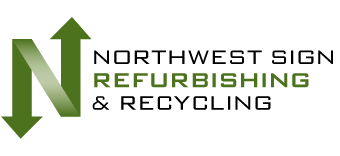NORTHWEST SIGN RECYCLING EMBRACES ENVIRONMENTAL STEWARDSHIP
Understanding Environmental Stewardship
Environmental stewardship refers to the responsible use and protection of our natural environment. It involves conservation and sustainable practices.
Northwest Sign Recycling: A Commitment to Sustainability
BEND, Ore. – July 11, 2013 – Northwest Sign Recycling integrates this stewardship into its daily operations and future objectives. Aluminum production significantly impacts the environment. Northwest Sign Recycling plays a vital role in promoting sustainability through recycling.
The Environmental Issues of Aluminum Production
Aluminum does not exist in its pure form; we must extract it from ore. The process of producing aluminum requires about 13 million watt-hours per ton. On average, producing one kilogram of aluminum needs 15.7 kWh of electricity. In contrast, recycled aluminum requires only 5 percent of that energy due to its lower melting point. For instance, recycling one pound of aluminum conserves 90-95% of the energy consumed to produce aluminum from bauxite ore. This recycling effort saves about 7 kWh of electricity. To put this into perspective, you can make 20 recycled cans with the energy used to create just one new aluminum can. Additionally, recycling one can can power a television for three hours. Importantly, recycled aluminum retains the same quality as new aluminum; it is sustainable and recyclable indefinitely without material loss.
Northwest Sign Recycling’s Impact
At our facility, we hydrostrip an average of 15 tons of aluminum road signs each year. After stripping old laminates, we can refinish these signs and keep them in service. This practice prevents the aluminum from going back to the smelter, conserving the energy needed to melt it down. Moreover, we recycle an additional 30 tons annually. This process uses less energy and has a lower environmental impact than producing new aluminum.
Impressive Savings Statistics
Northwest Sign Recycling’s hydrostripping saves our environment 471,000 kWh each year. Additionally, recycling damaged signs back to the smelters saves another 420,000 kWh annually. To put this into perspective, the average American home consumes about 11,280 kWh per year. Overall, our combined energy savings can power 79 homes for one year. The CO2 emissions avoided from our energy savings equal those produced by 26,194 propane cylinders used for home barbeques. Alternatively, it corresponds to the emissions from 8.3 tanker trucks of gasoline.
Inspiring Others to Embrace Stewardship
Increasingly, companies, municipalities, government agencies, and individuals are recognizing the benefits of environmental stewardship. Northwest Sign Recycling is one of these proactive companies, and we aim to inspire others. By showcasing effective recycling and repurposing practices, we hope to encourage everyone to reflect on their environmental stewardship. We urge everyone to ask, “How can I work on my environmental stewardship and strive for sustainability?” Taking steps toward this goal is worthwhile.
Resources for Further Reading
- EPA: Greenhouse Gas Calculator
- Treehugger.com: The Benefits of Aluminum Recycling
- US Energy Information Administration: FAQs about Electricity
About Northwest Sign Recycling
Northwest Sign Recycling transforms outdated, weathered aluminum signs into clean, reusable blanks. This approach greatly reduces costs and protects the environment. Since our inception in 2005, we have collaborated with numerous organizations and municipalities across the Western U.S. and nationally.
Advantages of Hydrostripping
- Saves time and money.
- Allows reuse of existing signs.
- Reduces the need for sanding blanks or buying new signs.
- Provides an environmentally friendly recycling option compliant with mandates.
- Earns credit for damaged, bent, or unusable scrap aluminum signs.
- Grants recycling credits to individual departmental budgets.
- Maintains departmental funding allocations for municipal and government clients
For more information about Northwest Sign Recycling, visit http://www.nwsignrecycling.com/.
